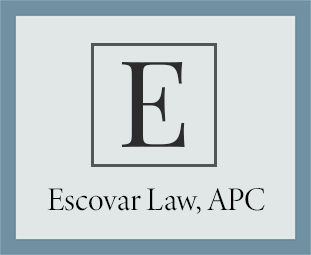AB-2942 was enacted in 2018 and made significant amendments to Penal Code section 1170(d)(1), now permitting district attorney offices across the state of California to recommend the recall of an inmate’s sentence and commitment and resentence the inmate to a recommended shorter term of imprisonment.
Los Angeles County District Attorney George Gascon recently took office on December 8, 2020 and issued “Special Directive 20-14,” which commits to conducting a “comprehensive review of cases where the defendant received a sentence that was inconsistent with the charging and sentencing policies” currently in force and his office will now use its powers under Penal Code section 1170(d)(1) to recommend recall and resentencing in line with the current policies.
According to DA Gascon his office will give priority to the following cases: people who have already served 15 years or more; people who are currently 60 years of age or older; people who are at an enhanced risk of COVID-19 infection; people who have been recommended for resentencing by CDCR; people who are criminalized survivors; and people who were 17 years of age or younger at the time of the offense and were prosecuted as an adult.
Upon being presented with a recommendation per Penal Code section 1170(d)(1), the court then has discretion on whether to recall the previously imposed sentence in exchange for a recommended shorter term of imprisonment. The court resentencing under this division may reduce a defendant’s term of imprisonment if it is in the interests of justice. When making this determination, the court may consider post-conviction factors such as the inmate’s disciplinary record and record of rehabilitation while incarcerated, evidence that reflects whether age, time served, and diminished physical condition, if any, have reduced the inmate’s risk for future violence, and evidence that reflects that circumstances have changed since the inmate’s original sentencing such that the inmate’s continued incarceration is no longer in the interest of justice.
Our office has a specific procedure for evaluating cases seeking Penal Code section 1170(d)(1) resentencing relief. Upon being retained, our office conducts thorough research into the circumstances of the underlying criminal conviction and sentencing. Our office will also request and review the inmate’s “Offender Central File” (“C-File”) from the California Department of Corrections and Rehabilitation (“CDCR”) to gain a deeper understanding of the defendant’s post-conviction behavior, disciplinary record, and record of rehabilitation. If relevant, we will also request the offender’s medical records from CDCR.
Using our experience handling post-conviction relief cases and our review of the specific circumstances of the defendant, we will provide our evaluation and recommendation regarding the likelihood of success with obtaining Penal Code section 1170(d)(1) relief. If it appears that the defendant has a strong case for resentencing, we can then proceed with presenting the District Attorney’s Office with mitigating evidence advocating for resentencing pursuant to Penal Code section 1170(d)(1).
Call our office now for more information!
DISCLAIMER:
The information in this blog post (“post”) is provided for general informational purposes only, and may not reflect the current law in your jurisdiction. No information contained in this post should be construed as legal advice from Escovar Law, APC or the individual author, nor is it intended to be a substitute for legal counsel on any subject matter. No reader of this post should act or refrain from acting on the basis of any information included in, or accessible through, this Post without seeking the appropriate legal or other professional advice on the particular facts and circumstances at issue from a lawyer licensed in the recipient’s state, country or other appropriate licensing jurisdiction. The information on this website is a communication and is for informational purposes only. The facts of every case are unique and nothing on this page or on this website should be taken as legal advice for any individual case or situation. The information on this website is not intended to create an attorney-client relationship and viewing of this information does not create an attorney-client relationship. The result portrayed in this advertisement was dependent on the facts of this case. Results will differ if based on different facts.

